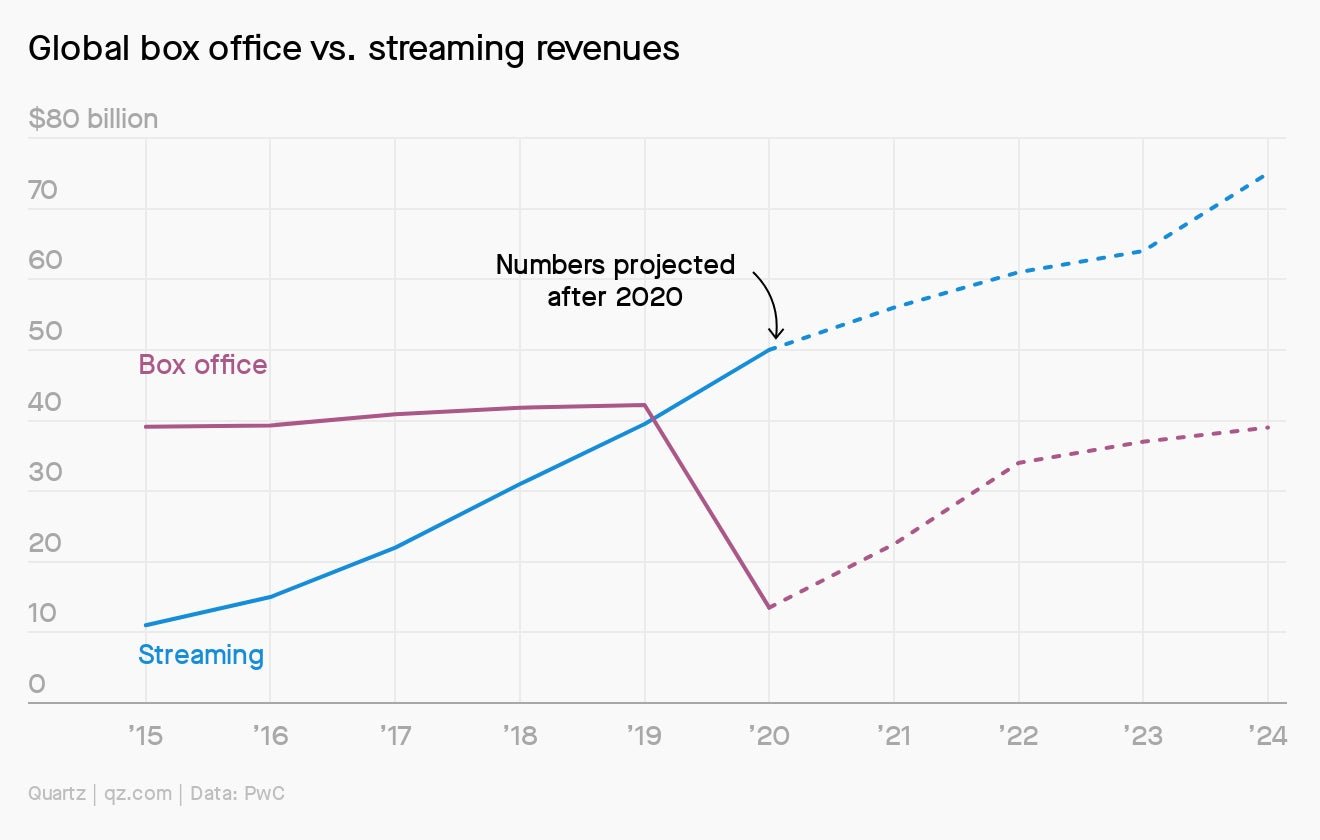Seeking great companies for remote workers
To modern workers everywhere,


To modern workers everywhere,
It’s been, of course, a difficult year for everyone, but also a momentous one for Quartz at Work. In 2020 we launched this very newsletter, started a live workshop series, and brought you hundreds more articles with the kind of journalism you’ve come to expect from us: compassionate, useful, attuned, insightful, and ahead of the curve.
Today we announce the start of another project: Quartz’s Best Companies for Remote Workers. This new global ranking, coming in mid-2021, will recognize companies on the leading edge of our remote-work future.
Thanks to the mass adoption of remote work—overnight and in every industry where it was possible—we have a more concrete vision of the workplace to come. Even if offices don’t go away, we are certain to see more jobs that are as mobile as the workers who fill them, more career growth that is untethered from proximity to headquarters, and more environments that are productive and welcoming for remote staff not just as a perk but as a business priority.
Some companies are building that future already, and we’re eager to recognize them. Enter Quartz’s Best Companies for Remote Workers. The catch? This is an opt-in ranking, meaning your company needs to register by March 16, 2020, in order to be considered. It doesn’t cost anything to sign up, except for the time spent on the application and on the employee surveys that will be conducted by the Best Companies Group, our research partner in this program.
To be eligible for the ranking, organizations must have at least 25 full-time permanent employees who are remote workers. (For employers with more than 100 permanent full-time employees, at least 25% of the workforce must be remote.) You can find more details on our FAQ page and we’ll keep you posted on important deadlines in the new year.
[button href=“https://qz.com/is/best-companies-for-remote-workers/”]Details please[/button]
Thank you for your readership and supportive feedback this year. It has helped to make navigating 2020 a bit easier, and we hope we returned the favor. The Memo will be back in 2021. Meanwhile, the whole Quartz at Work team joins me in wishing you a peaceful holiday season and a productive and healthy new year.—Heather Landy
Five things we learned this week
“Product therapy” can make your team happier and more effective. It worked at Duolingo.
The future of leadership will be managing hybrid workforces. Cloudflare’s Asia chief guarantees it.
The US stimulus bill lowers one of the biggest barriers for low-income college students. Financial aid is finally simplified.
The “three-martini lunch” tax break sums up why so many people hate capitalism. Enjoy your fully deductible meal on the company’s dime.
The city of Paris was fined for putting too many women in charge. C’est la vie.

30-second case study
Before Covid-19, the concept of working remotely was so foreign to the Indian IT industry that in March, as coronavirus cases were on the rise and workers were being advised to stay home, the country’s second-largest business process outsourcing firm, Genpact, ordered employees to the office. “My boss even told me that working from home was a gimmick to shirk work and people world over were promoting it so they can chill at home,” a Genpact employee from Gurugram told Quartz early in the pandemic.
But on March 24, when the government mandated a national lockdown, the IT sector—barring a few verticals that were deemed essential—was forced to fall in line. The lockdown lasted nearly 70 days and was lifted in a phased manner starting in June. To stay afloat during this time, the IT industry came up with solutions like buying new laptops for employees and renegotiating terms with clients to let projects be executed remotely. Firms also beefed up spending on collaboration tools and cybersecurity.
And it worked.
“This Covid experience of remote working has been a fantastic opportunity,” UB Pravin Rao, chair of the Indian IT lobby Nasscom and chief operating officer at Infosys, one of India’s largest IT firms, said at a press conference on Dec. 3. “There is nothing better than proving it and we have proved it at scale.”
The takeaway: It took a pandemic to show it was viable, but working from home is likely to be one of the ways the $200 billion Indian IT industry regularly operates, which to date has also included practices such as working onsite (from a client’s location), offshore (from a central office away from the client), and nearshore (from a country closer to the client’s).
“Given how far we have moved into the digital world it is highly unlikely that we will ever want to come back fully into the brick-and-mortar world that we were used to in the past,” says Rao.
Field guide interlude

Even before the pandemic, global streaming revenue was set to pass that of the box office in 2020.

Deciding which films go through which distribution avenues is one of the biggest challenges facing Hollywood—well, that and avoiding extinction. Our newest field guide looks at how the movie industry makes it through the pandemic and beyond.
+ Not yet a member? There’s still time to save 50% off Quartz. Become a member before Thursday to get half off your first year of membership. You’ll unlock access to all of our journalism, including our member-exclusive field guides. Use code BYE2020 at checkout.
Words of wisdom
“I want to live in a world where each of us feels able to be transparent about our struggles while enjoying the acceptance and support of our communities and employers.”—EarnUp co-founder Matthew Cooper, on his decision to step down as CEO to prioritize his mental health issues, and his decision to write about it
+ Read Matthew’s story, in his own words, on Quartz at Work.
ICYMI
Back in March, as we settled in at home under lockdown orders, we had an idea: What if we quickly assembled a panel of people who know what they’re doing when it comes to remote work and asked them to share their insights with our audience? The answer was Quartz at Work (from home), an event that turned into a workshop series that has now reached well over 10,000 live attendees from more than 100 countries.
If you missed any, or just want a sense of what they’re all about, visit our library of all 17 workshops we presented this year. Choose from sessions on how to improve remote communication, hold better remote meetings, build a career in quarantine, build antiracist companies, reduce distractions, lead through change, manage workplace conflict, and more. With a membership or free membership trial, you can access detailed recaps and the full video playbacks.
[button href=“https://qz.com/re/quartz-at-work-from-home/”]Browse the workshops[/button]
We’ll be back in January with new weekly editions of The Memo newsletter and a new lineup of Quartz at Work (from home) workshops to help make 2021 a good year at work.
You got The Memo!
Our best wishes for a productive and creative day and a happy and healthy new year. Please send any workplace news, three-martini lunches, and Quartz at Work (from home) workshop ideas to [email protected]. Get the most out of Quartz by downloading our app and becoming a member. This week’s edition of The Memo was produced by Heather Landy, Itika Sharma Punit, and Katherine Bell.